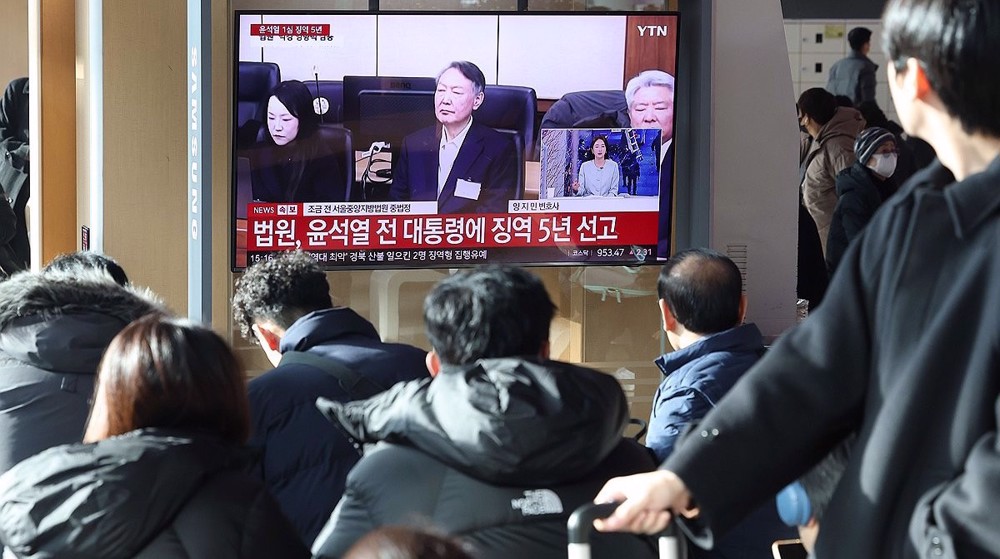South Korean artist transforms trash into art on mountains
When artist Kim Kang-eun found the slopes of Mount Jiri, South Korea's largest national park, littered with rubbish during a two-day trip in 2018, she decided it was time to send out a message about taking better care of nature.
She founded Clean Hikers, a group dedicated to picking up trash from mountain parks and turning the collection into art.
"Junk art is more compelling and well-received by people rather than just saying let's not litter. We can make an interesting image and it attracts people's attention," Kim, 30, said.
The group's latest creation is a collage of a crying cat tagged with the slogan "Save the World" on the summit of Mount Mani on Ganghwa Island, a park outside Seoul where many stray cats roam.
Other works include collages made of discarded face masks, bottles, and even running shoes that depict a fish, bird, butterfly, and a boy. After the works are created and documented, the garbage is thrown away in proper rubbish bins or are taken to be recycled.
With curbs linked to COVID-19 restricting indoor activities and large gatherings, more South Koreans are now spending time out in the open air.
The number of visitors to three major national parks close to the country's big cities has risen more than 20 percent in October compared to the same period last year, according to the Korea National Park Service (KNPS). Visits to the 22 national parks it manages generated more than 800 tonnes of rubbish in the first nine months, it added.
"We cannot clean up whole mountains. The more important thing is to keep doing this activity, tell people about this, and get more people to join in. This is much more crucial," said Kim.
(Source: Reuters)
FM Araghchi departs Muscat for Doha following nuclear talks with US
Israeli keeps killing more Palestinian civilians in Gaza amid relentless ceasefire violations
Aliyev: Azerbaijani territory will not be used for threats against Iran
Turkey arrests two on charges of spying for Israeli regime
Iran FM declares ‘good start’ as US–Iran talks conclude in Muscat
Iran strongly condemns 'terrorist' mosque blast in Islamabad
Iran enters talks backed by national power, popular support: MP
France, UK involved in assassination of Muammar Gaddafi's son: Reports









 This makes it easy to access the Press TV website
This makes it easy to access the Press TV website